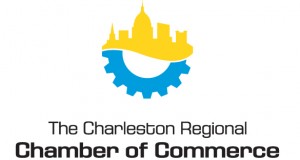 The Charleston Regional Chamber of Commerce is pleased to have represented our members throughout the 2014 legislative session.
The Charleston Regional Chamber of Commerce is pleased to have represented our members throughout the 2014 legislative session.
There were 1876 bills introduced during the session and 200 bills completed the legislative process (105 House bills, 95 Senate bills).
Here is a review of some of the key legislative outcomes from the session:
Project Launchpad
Pushed by the Charleston Chamber and Vision Shared, this job creation legislation passed and is on its way to the Governor for his signature.
The legislation focuses on creating jobs in high tech industries, many of which currently do not exist or minimally exist in the current economy in West Virginia.
The legislation encourages creating economic “clusters” or geographic concentrations of companies, specialized suppliers, service providers and associated institutions in a particular field that are present in specific region.
The legislation also encourages businesses within a “Project Launchpad” zone to have a student loan debt repayment policy for their employees.
Minimum Wage
The Legislature passed a modest increase in the West Virginia minimum wage law during the session. After January 1, 2015, the minimum wage will rise from the current $7.25 to $8.00 an hour. After January 1, 2016, the rate will increase to $8.75 per hour.
It is anticipated that the federal government may increase the national threshold for the minimum wage soon and the Charleston Chamber will keep you apprised of any changes.
If the federal government increases the minimum wage to levels exceeding what was passed by the Legislature, federal law would supersede state law.
Senate Bill 373
After considering more than 100 amendments, the Legislature passed Senate Bill 373 (SB 373), which establishes new regulatory programs that will require registration and permitting for aboveground storage tanks (ASTs)
Under the new Aboveground Storage Tank Act, owners and operators of all covered ASTs must register their tanks with the West Virginia Department of Environmental Protection (WVDEP).
As of October 1, 2014, it will be unlawful for any owner or operator to operate or use an AST that has not been properly registered. The legislation also directs WV Department of Environmental Protection (WVDEP) to establish permitting procedures for new and existing ASTs, as well as performance standards for design, construction, maintenance, corrosion detection, secondary containment and leak detection.
Notably, the bill contains a limited waiver to this permitting program for certain categories of tanks that either do not represent a substantial threat of contamination or that are currently regulated under standards that meet or exceed the requirements established by the new statute.
This new bill also includes requirements relating to annual inspections and certifications, evidence of financial responsibility, spill prevention response planning, notice to local governments and public water systems, tank signage and fee assessment.
Finally, in addition to the new AST program, SB 373 also establishes, among other things:
- New requirements for public water utilities relating to source water protection planning
- A new article that requires the WVDEP to inventory “potential sources of significant contamination” (as defined) within zones of critical concern and gives the agency the authority under certain circumstances to require registration and permitting of these sources.
Future Fund
The “Future Fund” bill passed in the legislative session late Saturday after several amendments in the House of Delegates. The House amendments materially changed how the “Future Fund” would work from what was initially proposed in the Senate. Our staff is currently reviewing the legislation and the amendments. We will develop a more detailed review in the future to share with the membership.
Comments are closed